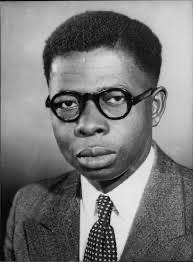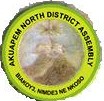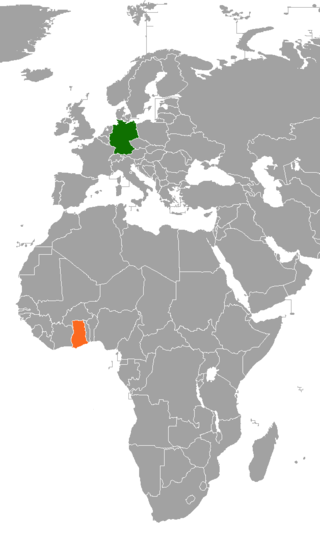
Edward Akufo-Addo was a Ghanaian politician and lawyer. He was a member of the "Big Six" leaders of the United Gold Coast Convention (UGCC) and one of the founding fathers of Ghana who engaged in the fight for Ghana's independence. He became the Chief Justice (1966–70), and later ceremonial President (1970–72), of the Republic of Ghana. He is the father of the current (executive) President of Ghana, Nana Addo Akufo-Addo.

Joseph Kwame Kyeretwie Boakye Danquah was a Ghanaian politician, scholar, lawyer and statesman. He was a politician in pre- and post-colonial Ghana, which was formerly the Gold Coast, and is credited with giving Ghana its current name.

Ako Adjei, was a Ghanaian statesman, politician, lawyer and journalist. He was a member of the United Gold Coast Convention and one of six leaders who were detained during Ghana's struggle for political independence from Britain, a group famously called The Big Six. He has been recognized as a founding father of Ghana for his active participation in the immediate politics of Ghana's pre-independence era. Adjei became a member of parliament as a Convention People's Party candidate in 1954 and held ministerial offices until 1962 when as Minister for Foreign Affairs he was wrongfully detained for the Kulungugu bomb attack.
Articles related to Ghana include:

Presbyterian Boys' Secondary School (PRESEC) is a secondary boarding school for boys. It is located in Legon, Accra, Ghana. It was founded in 1938, under the auspices of the Presbyterian Church of the Gold Coast. The Basel missionary-theologian, Nicholas Timothy Clerk (1862–1961), who served as the first Synod Clerk of the Presbyterian Church of the Gold Coast from 1918 to 1932, used his tenure to advocate for the establishment of the secondary school. The school has ties with its sister schools, Aburi Girls' Senior High School and Krobo Girls Senior High School.

Aaron Eugene Kofi Asante Ofori-Atta, was a Ghanaian educator, lawyer and politician who served as the fourth Speaker of the Parliament of Ghana.

Akropong is a town in South Ghana and is the capital of the Akuapim North District, a district in the Eastern Region of South Ghana. This town is known for producing snails and palm oil. Akropong has a 2013 settlement population of 13,785 people.
Pokuase, also spelled Pokoasi, is a suburb of Accra, the capital city of Ghana and spans the area from Pokuase, leading off the Accra-Kumasi motorway on the right coming from Accra central; and leading off the motorway at Pokuase Junction and rising to ‘Okai Kwei Hill’, on the left coming from town. It is a mixture of lively retail shopping areas, with local stores, bars or 'drinking spots', bus/taxi stations, and a market. It also has many hotels, guest houses and rental apartments- such as the eco-chic Legassi Gardens Apartments-, and 'high-end' developing residential estates, such as Ofankor Hills Estates and Franko Estates, amongst many others; as well as the long-established executive gated community of ACP Estates.; and HFS Estates which borders the erstwhile Gua Koo Sacred Grove in Pokuase.
Ohene Djan was a Ghanaian sports administrator and politician. He was the First Director (Minister) of Sports of Ghana at the Central Organisation of Sports (COS) and was also vice-president of the Confederation of African Football.

Nicholas Timothy Clerk was a Protestant theologian, clergyman and pioneering missionary of the Basel Evangelical Missionary Society in southeast colonial Ghana. His father was the Jamaican Moravian missionary Alexander Worthy Clerk, who worked extensively on the Gold Coast with the Basel Mission and co-founded in 1843 the Salem School, a Presbyterian boarding middle school for boys. Born on the Gold Coast, N. T. Clerk was elected the first Synod Clerk of the Presbyterian Church of the Gold Coast, in effect, the chief ecclesiastical officer, equivalent to the chief administrator, leading the overall strategic operations of the national church organisation, a position he held from 1918 to 1932. A staunch advocate of secondary education, Nicholas Timothy Clerk became a founding father of the all-boys Presbyterian boarding school in Ghana, the Presbyterian Boys' Secondary School, established in 1938. As Synod Clerk, he pushed vigorously for and was instrumental in turning the original idea of a church mission high school into reality.

The Clerk family is a Ghanaian historic family that produced a number of pioneering scholars and clergy on the Gold Coast. Predominantly based in the Ghanaian capital, Accra, the Clerks were traditionally Protestant Christian and affiliated to the Presbyterian Church. The Clerk family is primarily a member of the Ga coastal people of Accra and in addition, has Euro-Afro-Caribbean heritage, descending from Jamaican, German and Danish ancestry.

MatildaJohannaClerk was a medical pioneer and a science educator on the Gold Coast and later in Ghana as well as the second Ghanaian woman to become an orthodox medicine-trained physician. The first woman in Ghana and West Africa to attend graduate school and earn a postgraduate diploma, Clerk was also the first Ghanaian woman in any field to be awarded an academic merit scholarship for university education abroad. M. J. Clerk was the fourth West African woman to become a physician after Nigerians, Agnes Yewande Savage (1929), the first West African woman medical doctor and Elizabeth Abimbola Awoliyi (1938) in addition to Susan de Graft-Johnson, née Ofori-Atta (1947), Ghana's first woman physician. These pioneering physicians were all early advocates of maternal health, paediatric care and public health in the sub-region. For a long time after independence in 1957, Clerk and Ofori-Atta were the only two women doctors in Ghana. By breaking the glass ceiling in medicine and other institutional barriers to healthcare delivery, they were an inspiration to a generation of post-colonial Ghanaian and West African female doctors at a time the field was still a male monopoly and when the vast majority of women worldwide had very limited access to biomedicine and higher education. Pundits in the male-dominated medical community in that era described Matilda J. Clerk as "the beacon of emancipation of Ghanaian womanhood."
Nathan Anang Quao, was a Ghanaian statesman and educationist who served as Secretary (Minister) at the PNDC Secretariat from 1984 to 1993 and Special Assistant to President Jerry Rawlings from 1993 to 2001. A career diplomat and civil servant, he retired as Cabinet Secretary and Head of the Civil Service in 1973. Quao was the founding headmaster of Keta Secondary School in 1953 and was appointed the first chairman of the Ghana Education Service Council in 1974.

The Presbyterian College of Education, Akropong, is a co-educational teacher-training college in Akropong in the Akwapim North district of the Eastern Region of Ghana. It has gone through a series of previous names, including the Presbyterian Training College, the Scottish Mission Teacher Training College, and the Basel Mission Seminary. The college is accredited by the National Accreditation Board of the Ministry of Education, Ghana as a Degree Research Institution affiliated to the University of Education, Winneba.

Jane Elizabeth Clerk was a Gold Coast schoolteacher and a public education administrator. During the colonial era, she was among an early generation of pioneer women educators who eventually became principals of major government schools. In that period, Jane Clerk was the Headmistress of the Government Girls’ Middle School in Kumasi.
Adeline Sylvia Eugenia Ama Yeboakua Akufo-Addo was a First Lady of the second republic of Ghana as the wife of president Edward Akufo-Addo. She was the mother of president Nana Akufo-Addo.

The Christ Presbyterian Church, formerly known as the Basel Mission Church, Akropong, is a historic Protestant church located in Akropong–Akuapem, Ghana. It is the first Presbyterian Church to be established in Ghana. It was founded in 1835 by Andreas Riis, a Danish minister and missionary of the Basel Mission who was the only congregant at the time. After years of dormancy, the church began to flourish after the arrival of the Moravian missionaries from the West Indies in 1843. The Basel missionary, Johann Georg Widmann was appointed the minister-in-charge of the Akropong church in 1845. The Jamaican missionary, John Hall, who had served as an elder in his home church in Irwin Hill, Montego Bay, became the first Presbyter of the church while Alexander Worthy Clerk became the first Deacon. Liturgical services are conducted in English and the Twi language.
Peduase is a town in the Akuapim South Municipal District of the Eastern Region of south Ghana and known for the Peduase Lodge. It shares borders with Ayi Mensa which is one of the entry points from Accra to Akuapem.

Germany–Ghana relations are good and Ghana is one of the priority countries for German development aid. Official Diplomatic Relations between the two countries were established in the 1950s, but contacts between the two societies go back much further and can be traced back to the 17th century.


















